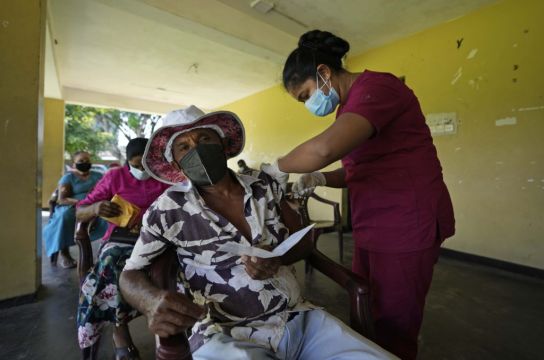Sri Lanka will require the showing of a Covid-19 vaccination certificate for entry to public places starting from January 1, in a renewed attempt to prevent another surge in infections.
Tourism Minister Prasanna Ranatunga made the announcement on Sunday, in an abrupt switch from the gradual ending of restrictions put in place after the country was confronted with a third wave of Covid-19 infections in April caused by the Delta variant.
Mr Ranatunga said health officials were drawing up arrangements on implementing the decisions, according to a government statement.
Since Sri Lanka lifted a six-week lockdown on October 1, life has begun returning to normal, with the reopening of cinemas, restaurants and wedding parties. Restrictions put in place after the country was faced with a third wave of Covid-19 infections caused by the Delta variant in April have been gradually lifted.
However, police continue to enforce the wearing of face masks and maintenance of social distancing in public places. Restrictions also remain on public transport, and large-scale gatherings are discouraged.
Covid-19 cases surged in Sri Lanka in July and the country was placed under a conditional lockdown from August 20 to October 1. At the peak, daily infections rose to more than 3,000, with 200 or more deaths. New daily infections have since fallen to around 500 and deaths to fewer than 20.
Since Sri Lanka’s first Covid-19 patient was detected in March 2000, the country has recorded 578,439 confirmed cases and 14,720 deaths from the virus.







